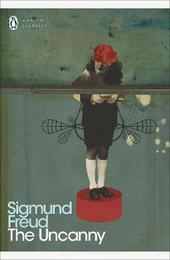
|
The Uncanny
Paperback / softback
Main Details
Description
Leonardo da Vinci fascinated Freud primarily because he was keen to know why his personality was so incomprehensible to his contemporaries. In his biographical essay on da Vinci, included in this volume, he deconstructs both his character and the nature of his genius. As ever, many of his exploratory adventures lead to the subject's sexuality - why did da Vinci depict the naked human body the way he did? What of his tendency to surround himself with handsome young boys that he took on as his pupils? Intriguing and often contentious, this volume contains some of Freud's best writing.
Author Biography
Date- 2004-09-22 Sigmund Freud (1856-1939) was born in Moravia; between the ages of four and eighty-two his home was in Vienna- in 1938 Hitler's invasion of Austria forced him to seek asylum in London, where he died in the following year. His career began with several years of brilliant work on the anatomy and physiology of the nervous system. He was almost thirty when, after a period of study under Charcot in Paris, his interests first turned to psychology, and another ten years of clinical work in Vienna (at first in collaboration with Breuer, an older colleague) saw the birth of his creation, psychoanalysis. Freud's life was uneventful, but his ideas have shaped not only many specialist disciplines, but the whole intellectual climate of the twentieth century. Sigmund Freud was born in 1856 in Moravia; between the ages of four and eighty-two his home was in Vienna- in 1938 Hitler's invasion of Austria forced him to seek asylum in London, where he died in the following year. His career began with several years of brilliant work on the anatomy and physiology of the nervous system. He was almost thirty when, after a period of study under Charcot in Paris, his interests first turned to psychology, and another ten years of clinical work in Vienna (at first in collaboration with Breuer, an older colleague) saw the birth of his creation, psychoanalysis. This began simpl
|